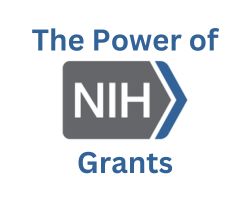TOP

- This event has passed.
Advancing Life Sciences and Technology – Strengthen Your Network
December 8, 2021 @ 9:00 am - 10:00 am UTC
 There is light at the end of the tunnel. Is it coming from an oncoming train? This presentation supplies economic data and analysis juxtaposing the pre-pandemic and pandemic world, and then supplies a forecast for the post-pandemic one. Among the areas of focus are labor markets, financial markets, real estate, construction, consumer spending, business investment, international trade and government finances.
There is light at the end of the tunnel. Is it coming from an oncoming train? This presentation supplies economic data and analysis juxtaposing the pre-pandemic and pandemic world, and then supplies a forecast for the post-pandemic one. Among the areas of focus are labor markets, financial markets, real estate, construction, consumer spending, business investment, international trade and government finances.
Anirban Basu is Chairman & CEO of Sage Policy Group, Inc., an economic and policy consulting firm in Baltimore. In 2014, Maryland governor Larry Hogan appointed him Chair of the Maryland Economic Development Commission. Anirban also serves as the chief economist to Associated Builders and Contractors and as chief economic adviser to the Construction Financial Management Association. In 2007 and then again in 2016, Mr. Basu was selected by the Daily Record newspaper as one of Maryland’s 50 most influential people. The Baltimore Business Journal named him one of the region’s 20 most powerful business leaders in 2010. He holds four graduate degrees, including a JD and a PhD.
BOTTOM
Recent Work / View all work
Recent Posts / View All Posts

 BALTIMORE–(BUSINESS WIRE)–Sapio Sciences, the science-aware™ lab informatics platform, today announced the integration of the NVIDIA BioNeMo platform into the Sapio Lab Informatics Platform. This integration brings AI-driven computational drug discovery directly into Sapio ELN (Electronic Lab Notebook), helping to streamline workflows and improve decision-making in drug discovery.
BALTIMORE–(BUSINESS WIRE)–Sapio Sciences, the science-aware™ lab informatics platform, today announced the integration of the NVIDIA BioNeMo platform into the Sapio Lab Informatics Platform. This integration brings AI-driven computational drug discovery directly into Sapio ELN (Electronic Lab Notebook), helping to streamline workflows and improve decision-making in drug discovery.
With the BioNeMo platform, researchers can accelerate drug discovery by leveraging science-specific AI frameworks, pre-trained models, and generative AI tools to streamline the identification of potential drug candidates and improve target selection accuracy. NVIDIA BioNeMo provides scientists with a framework for training and deploying large biomolecular language models at supercomputing scale.

BioPharmaDive: AstraZeneca adds ‘in vivo’ cell therapy capabilities with EsoBiotech deal
Andy | News | No Comments The British drugmaker is paying up to $1 billion to buy the Belgian startup, whose technology it sees as useful in treating cancer as well as autoimmune conditions.
The British drugmaker is paying up to $1 billion to buy the Belgian startup, whose technology it sees as useful in treating cancer as well as autoimmune conditions.
AstraZeneca is bolstering its cell therapy capabilities, agreeing on Monday to pay up to $1 billion for a biotechnology startup making treatments that reprogram cells inside the body.
The British drugmaker is buying EsoBiotech, a Belgian startup, for $425 million in cash upfront. EsoBiotech’s investors, among them Invivo Partners and UCB Ventures, could receive up to $575 million in additional payouts should the startup’s programs hit certain development and regulatory milestones, AstraZeneca said in a statement.

Phlow Corp. Achieves Key Milestone Toward Full Epinephrine Production — Made in America
Andy | News | No Comments Validation Completed for a Novel, Cost-Competitive Epinephrine Active Pharmaceutical Ingredient Process, Drug Master File Successfully Filed
Validation Completed for a Novel, Cost-Competitive Epinephrine Active Pharmaceutical Ingredient Process, Drug Master File Successfully Filed
Richmond, Virginia, March 17, 2025 (GLOBE NEWSWIRE) — Phlow Corp., a U.S.-based certified B Corporation on a mission to bring medicines to life through advanced development and manufacturing in America, today announced a major milestone, achieving a successful process validation campaign for Epinephrine active pharmaceutical ingredient (API) production. This achievement positions Phlow to continue advancing toward full domestic production capabilities in its state-of-the-art U.S. facilities for this life-saving medicine.

 The National Institutes of Health (NIH) is vital in driving scientific discovery and economic growth across the United States. Recent reports from United for Medical Research (UMR) and Forbes highlight just how impactful NIH funding has been—generating $94.58 billion in economic activity in FY2024 alone and supporting more than 407,000 jobs nationwide. For every $1 invested, NIH research funding returns $2.56 in economic impact.
The National Institutes of Health (NIH) is vital in driving scientific discovery and economic growth across the United States. Recent reports from United for Medical Research (UMR) and Forbes highlight just how impactful NIH funding has been—generating $94.58 billion in economic activity in FY2024 alone and supporting more than 407,000 jobs nationwide. For every $1 invested, NIH research funding returns $2.56 in economic impact.
For the BioHealth Capital Region (BHCR)—home to NIH, the FDA, and a growing network of research institutions and life sciences companies—this funding is critical. NIH grants fuel the work of startups, researchers, and small businesses developing groundbreaking technologies in biotech, AI-driven drug discovery, personalized medicine, and advanced therapeutics. Without sustained investment, the entire innovation ecosystem is at risk, impacting job creation, commercialization efforts, and, ultimately, patient outcomes.

